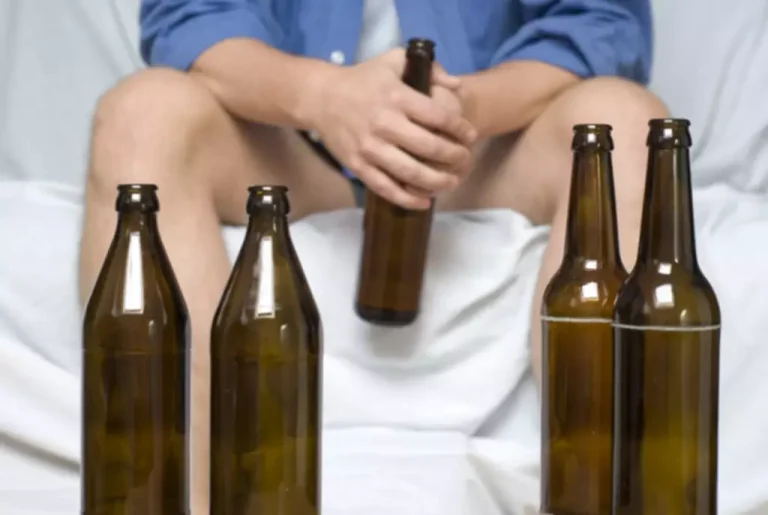
Traumas like sexual assault, natural disaster, combat, witnessing death, severe injury or other life-altering events are called “Big T” traumas, or traumas that are typically one-off events. Find a brighter tomorrow by starting with our compassionate team of medical professionals and recovery specialists today. What one person finds traumatizing might not even be bothersome to another. Our perception shapes our brain’s reaction to a situation, regardless of the actual level of threat, and our responses are highly individualized. There are plenty of resources out there to help you or your loved one overcome addiction and get started on the road to recovery. In reality, though, anyone can be an addict, even if they don’t “look” like it.
Overcoming Shame and Silence: Seeking Help and Supporting Others
- It is essential to confront these myths and address the addiction that usually goes unseen.
- Punishing people with addiction just continues the stigma and stops them from getting help.
- Importantly, these factors are not related to personal choice but are likely a result of a person’s environment or life circumstances.
- These misconceptions and misinformation make the process of healing more difficult.
Still, https://ecosoberhouse.com/ the idea that the condition is limited to soldiers or first responders is false. We often view time as a universal healer—it can soothe wounds and ease pain as it passes. However, when it comes to trauma, the notion that time alone can mend deep wounds is misleading. Trauma’s impacts on our nervous system often require intentional healing efforts.

Alcoholism: a Serious Disease with Fatal Outcomes
SAMHSA works to prevent and treat mental health conditions and provides support for people seeking or already in recovery. The presence of a mental health condition can increase the risk of developing an addiction. Proper treatment, such as a dual diagnosis program, is necessary to address both addiction and mental health issues. The idea that individuals with addiction are awful and deserving of discipline comes from a lack of understanding about addiction’s nature. Addiction isn’t a choice, but a result of genetics, environment, and mental health.

What Is Psychotherapy and Why Would I Need It at Drug Rehab?
By debunking myths of trauma and recognizing its signs, individuals can take meaningful steps toward addressing their trauma and other co-occurring problems. It’s important to know that treatment is not a cure, and that relapse is a part of recovery. Changing the approach based on how someone is doing can help their progress. Genetic predisposition, environmental influences, and mental health issues are some of the contributors to addiction. Treatment attempts to tackle these factors and equip people with the means to control cravings, cope with stressors, and practice healthier coping methods.
Seek Treatment for PTSD With Gateway Foundation

Instead, it highlights the complexity of addiction and the challenges of maintaining sobriety. Relapse often occurs when individuals face triggers or underlying issues that have not been adequately addressed. Rather than blaming individuals for relapse, we must provide ongoing support and address the root causes driving addictive behaviours. What’s going to help is a robust support system and working to address any underlying contributing factors such as trauma or mental health issues. The other important thing to know is that substance use and mood-altering actually impact the brain circuits tasked with good decisions and willpower. Addiction alters brain circuits responsible for self-control, making myths about addiction and recovery it challenging to resist cravings.
- Addiction is not a moral failure or choice, but a complex disease involving various factors.
- However, going to treatment is a good sign, a positive step, and an active involvement in disrupting addiction.
- We must spread accurate information to dispel myths and challenge stereotypes.
- People react differently to distressing situations, and while you may be able to handle one type of trauma, another person may be unable to cope.

You’ll learn how to develop a new mindset that will help you avoid returning to that substance once you leave treatment. Addressing the underlying cause of addiction is key to a lasting recovery. There is a common misconception that rehabilitation programs guarantee success in overcoming addiction. While rehabilitation can provide valuable support and resources, the recovery process is far from straightforward.

Myth: Therapy and self-help are a waste of time. Why bother when you can just take a pill?
- It is crucial to differentiate between what is real and what is not, in order to deliver correct info and aid those on their recovery trip.
- “Predictors of PTSD and delayed PTSD afte…ychosocial resources.” The Journal of nervous and mental disease, July 2006.
- Positive coping mechanisms and social support can play a significant role in preventing the development of a dual diagnosis 4.
- Therapists are trained professionals who support clients through various life changes and challenges.
- There is a prevailing stereotype that persons with an addiction are unable to function in society, hold down jobs, or maintain healthy relationships.
Family involvement can sometimes complicate therapy if conflicts arise. Therapy should be balanced and adjusted based on individual needs to ensure it remains beneficial rather than exhausting. Relationship difficulties diminish as understanding and cooperation increase. It offers insights into effective communication and empathy, essential for nurturing connections. Therapists often guide individuals in reframing negative thoughts. Whether dealing with painful memories or stress, therapy can help.
These misconceptions can prevent individuals from seeking therapy, which can be vital for personal growth and managing mental health conditions. Trauma and addiction often go hand-in-hand, creating a complex cycle that can be challenging to break. Individuals facing unprocessed trauma may find themselves turning to substances like drugs or alcohol as a way to cope with their emotional pain. This coping mechanism, while initially providing temporary relief, can quickly spiral into dependency, leading to a host of additional problems. It becomes crucial to address both trauma and addiction simultaneously, as treating one without the other may hinder recovery. Recovery from addiction needs tailored treatment, taking into account individual needs and circumstances.